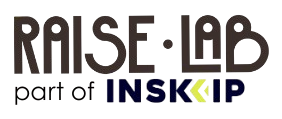CDC Habitat published its annual report on 5 July 2023, which presents the 2022 results and the outlook for 2023. Ce 2022 annual report , which highlights the group's action to transform housing and its most beautiful projects in mainland France and overseas, also highlights testimonies from its stakeholders and expert opinion pieces such as that of Joséphine Simeray, Consulting Director of RaiseLab.
In this expert opinion, Joséphine highlights the role and advantages of open innovation, which emerged in the early 2000s, which has become a key strategy for large companies and mid-caps. Indeed, by collaborating with external partners such as start-ups, universities and researchers, these companies broaden their pool of ideas, improve cost/efficiency, accelerate time to market and access new talent. Open innovation is not limited to operational gains; it also plays a crucial role in the transformation of human resources. By working on these projects, employees develop new skills, adopt innovative methods and strengthen their creativity and confidence. This experience is perceived as a driver of motivation and attractiveness, responding to the search for meaning at work.
“Open innovation makes it possible to find new ideas from outside, to have access to highly qualified teams that we do not necessarily have internally. It is also an opportunity to benefit from the agility and speed of execution, a trademark of the start-up world.” declares Joséphine Simeray, Consulting Director at RaiseLab.
CDC Habitat leads numerous innovation initiatives. The group has integrated a culture of large-scale innovation among its employees, in particular through an open innovation approach. In 2023, CDC Habitat experimented with concrete projects in partnership with start-ups and responding to key challenges in the fields of sustainability, climate change adaptation, and organizational effectiveness.
Clotilde Saint Hilaire, Director of Mission Innovation at CDC Habitat explains: “Two years ago, CDC Habitat wanted to accelerate innovation in the Group by focusing in particular on the widest possible dissemination of this culture among our employees. We have also embarked on an open innovation process, by setting up a network of internal referents, the start-up angels, whom we have trained in these methods. In 2023, we are getting to the heart of the matter and are experimenting, in conjunction with start-ups, with projects relating to the valorization of greywater for the revegetation of residences, techniques aimed at improving summer comfort in a context of climate emergency and solutions to effectively identify internal stakeholders in a group that is constantly changing.”
RaiseLab is proud to be a partner of the CDC Habitat group and to support them in the methodological and operational structuring of their innovation approach with external partners such as startups.
Find these testimonies in the 2022 CDC Habitat activity report.

CDC Habitat: sustained activity in 2022 despite a complicated economic climate
For 2022, CDC Habitat posted a net income of €579.5 million, a very strong increase (64%) compared to 2021, and a high level of investment of €3.4 billion. In 2022, nearly 17,000 homes were started, nearly 17,500 new homes delivered, more than 6,700 sold (including 3,750 as part of the Lamartine operation) and more than 10,400 committed to rehabilitation.
In 2022, CDC Habitat redefined its Climate strategic plan to Accelerate decarbonization of its park and has developed its Climate change adaptation plan to take into account current and future climate risks, by 2050, in the management of its real estate assets.
It displays a proactive strategy for thermal rehabilitation : The 0.7% of the fleet with F and G labels will be treated by 2025 and the 7% of the fleet with labels E before 2032, i.e. before the regulatory deadlines. Housing in the park consumes an average of 134 kWhEP/m²/year (label C), down by 2% compared to 2021.


.jpg)

